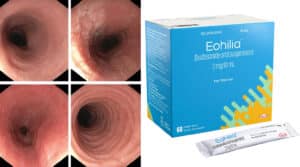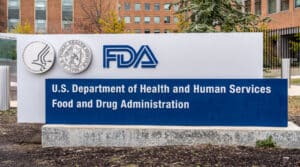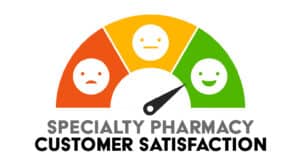Today we now better understand how UBER costly drugs, such as the big-ticket CAR-T therapies, are billed and paid for in our highly fractional health market.
AIS Health just published a very informative article in the May issue of Radar on Specialty Pharmacy titled Study Finds Wide Variation in Payers’ CAR-T Drug Costs. The report was produced by Prime Therapeutics.
The report examined integrated pharmacy and medical claims data with a CAR-T drug claim line of more than $250,000. Patients also had to be continuously enrolled for an 86-day CAR-T episode: 30 days prior to and 56 days following administration (such a protocol adds a ton of $$$$ beyond drug cost).
What was most stunning was the variance in drug cost. The CAR-T therapies are available at only a handful of leading medical centers in the US. National payers may have an existing contract with these hospitals as noted in the article, but many regional payers likely do not. As such, these hospitals are ‘out-of-network’ and these hospitals will submit claims for CAR-T therapies based on the hospitals’ arbitrary ‘Usual & Customary’ rate….. a rate that appears to range from about 150% of WAC to about 10 X WAC. (It is unclear whether a discount is applied to the billed charges, which is common practice.) Further, these drugs are billed under the medical benefit which gives hospitals significantly greater wiggle room to squeeze payers for big $$s
Here’s the bottom line—-
– The median CAR-T drug claim was $411,711 and ranged from $275,244 (essentially WAC) to $2,101,934. The mean CAR-T drug cost was $527,547
– The median cost for the total episode was $610,999, ranging from $358,980 to $2,235,658.
– Twelve percent of the episodes totaled more than $1 million.
Payers are at the mercy of these out-of-network hospitals and have no alternatives. Given the actual billed costs it is no surprise that payers are looking for any way to bring down the cost burden for these new drugs. We anticipate that payers will start to press hard for outcomes-based deals with manufacturers.
Study Finds Wide Variation in Payers’ CAR-T Drug Costs
Chimeric antigen receptor T cell (CAR-T) therapies have been available in the U.S. since August 2017. While the list prices for the one-time treatments are known, a recent study from Prime Therapeutics LLC examined their total cost of care and clinical events following administration and found that payer costs for the therapies varied widely. Payers could use this information to help forecast costs for these drugs and strike value-based deals, says one author of the study, which was presented at the Academy of Managed Care Pharmacy’s AMCP 2021 virtual conference in April.
Study Examined First Two CAR-Ts
Researchers examined the first two CAR-Ts on the U.S. market. Yescarta (axicabtagene ciloleucel) from Kite Pharma, Inc., a Gilead Sciences, Inc. company, was approved Oct. 18, 2017, for the treatment of adults with relapsed or refractory large B-cell lymphoma after two or more lines of systemic therapy (RSP 11/17, p. 8). The drug — which gained FDA approval for relapsed or refractory follicular lymphoma after at least two forms of treatment on March 6 (RSP 4/21, p. 8) — is priced at $373,000.
On May 1, 2018, the FDA approved Kymriah (tisagenlecleucel) from Novartis Pharmaceuticals Corp. — first approved on Aug. 30, 2017 (RSP 9/17, p. 4) for the treatment of people up to 25 years old with B-cell precursor acute lymphoblastic leukemia (ALL) that is refractory or has relapsed at least twice — for the same large B-cell lymphoma indication (RSP 5/18, p. 8) and is priced the same for this use as Yescarta.
The process of administering CAR-Ts is complex and involves extracting a person’s T-cells, shipping them to a facility where they are genetically reprogrammed and infusing them into the patient. Patients must stay near their infusion facility for a period of time afterwards to be monitored for any adverse reactions such as cytokine release syndrome and neurological toxicities.
Researchers examined integrated pharmacy and medical claims data among an average of 15 million commercially insured members from January 2018 to June 2020 with a CAR-T drug claim line allowed cost of more than $250,000. Members had to be at least 18 years old and have a lymphoma diagnosis but not a leukemia or ALL diagnosis. They also had to be continuously enrolled through an 86-day CAR-T episode: 30 days prior to and 56 days following administration.
Members’ non-financial outcomes were followed from the CAR-T episode date through Oct. 31, 2020. Members were separated into three groups:
Experienced any claims-identified clinical event,
Disenrolled without experiencing an event or
Remained enrolled and did not experience an event by Oct. 31, 2020.
Researchers identified 74 members who met the study criteria. More than half — 59% — were male and ranged from 18 to 76 years old, with an average age of 55. The outcome events assessment follow-up period averaged 288 days after the CAR-T episode, ranging from 26 to 990 days.
The mean total cost of care for the 86-day episode was $711,884; the mean CAR-T drug cost was $527,547, while the mean non-CAR-T drug cost was $184,337. The median CAR-T drug claim was $411,711 and ranged from $275,244 to $2,101,934. The median cost for the total episode was $610,999, ranging from $358,980 to $2,235,658. Twelve percent of the episodes totaled more than $1 million.
Among the outcome events following the CAR-T episode, 29 of the 74 members experienced one, 21 disenrolled or ceased all claim activity without experiencing an event, and 24 remained enrolled and did not experience an event. Of the members experiencing a clinical event, 22 received chemotherapy, four had a bone marrow transplant, and 13 had an identified death or hospice. Nine members had more than one type of event.
“There has been little real-world data reported about the clinical and financial aspects of CAR-T therapy for adults with lymphoma,” points out Joseph Leach, M.D., senior vice president and chief medical officer at Prime and a study co-author. “We went into this analysis with the goal of using the integrated medical and pharmacy claims data of over 15 million commercially insured lives to identify potential avoidable future costs and begin to assess real-world CAR-T therapy outcomes. Though we knew the CAR-T drug list price, we still expected variance, and it did vary.
Non-Drug Costs Previously Were Unknown
“Conversely, the non-drug costs, as they relate to what we defined as the 56-day ‘CAR-T episode,’ were unknown and therefore [this is] a noteworthy finding,” he continues. “For example, we knew that stem cell transplantation was costly but needed to perform this analysis to understand what CAR-T drug plus all other costs would sum to, providing a potential expected financial range cost. Our clinical outcomes findings appear similar to those in the clinical trial findings.”
Asked if payers could take steps to bring down some of the non-CAR-T costs, Leach replies, “The wide variation in payer CAR-T drug cost sticks out as an area for opportunity. The CAR-T drug wholesale acquisition cost (WAC) is consistent across all cases, but the total insurer payment showed substantial difference that has optimization potential. It’s difficult to say the same thing for the non-drug costs knowing that patients may vary in their response to therapy, side effect management costs — for example, cytokine release syndrome — or hospital stay length.”
As far as the CAR-T drug costs being higher than the WACs, Leach tells AIS Health, a division of MMIT, that those costs were paid “under the medical benefit through contracts or agreements held between the payer and hospital. It was anticipated that the real-world CAR-T drug cost would be higher than WAC, based on past drug pricing through the medical benefit observations, as drugs paid through the medical benefit are frequently priced higher than WAC.”
Data Can Help Insurers With Forecasting
Leach maintains that “having an understanding of the CAR-T therapy median and range of drug and total costs may be useful as insurers forecast their own future costs for these or similar drugs. Payers may use these findings in contract conversations with providers, as well as value-based purchasing agreement conversations with drug manufacturers. This information provides real-world, integrated medical and pharmacy insurance benefits, fact-based data to negotiate pharmaceutical manufacturer–insurance payer value-based purchasing agreements ensuring the CAR-T therapy price to value is fair. It should be noted that value-based purchasing agreement reporting fulfillment will require comprehensive outcomes data and sophisticated analytic insurer/PBM reporting capabilities.”
Earlier this year on Feb. 5, the FDA approved a third CAR-T for relapsed or refractory large B-cell lymphoma after two or more lines of systemic therapy: Bristol Myers Squibb’s Breyanzi (lisocabtagene maraleucel) (RSP 3/21, p. 8). With the approval, Leach says it’s possible that payers may begin preferring one of the drugs, “especially if a value-based purchasing agreement with either manufacturer, provider or both results in fair pricing and cost-variation control.”
That said, “although there are differences in the design of the available products, lack of comparative clinical trial data will make choosing a preferred CAR-T based on clinical efficacy challenging. Additional real-world studies such as this one may help inform differences in efficacy and toxicity. Value-based purchasing agreements based on meaningful endpoints such as duration of response and total cost may also be important factors in choosing a preferred product.”






